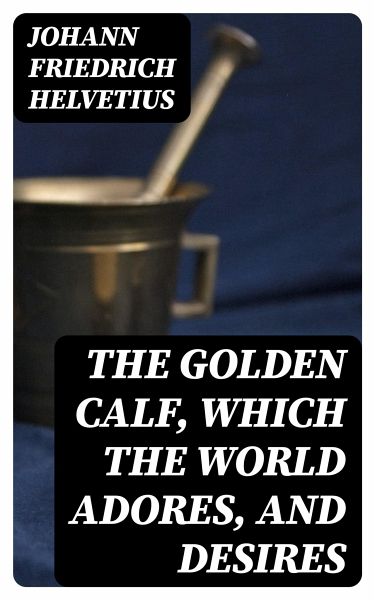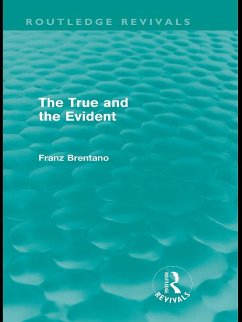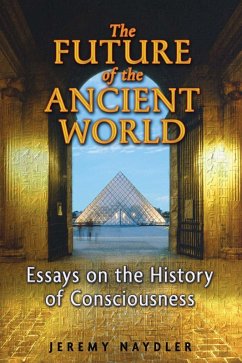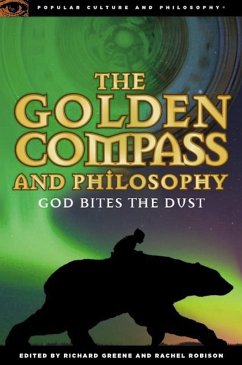
The Golden Calf, Which the World Adores, and Desires (eBook, ePUB)

PAYBACK Punkte
0 °P sammeln!
In "The Golden Calf, Which the World Adores, and Desires," Johann Friedrich Helvetius delves into the intricate relationship between human desire and societal values, creating a poignant critique of materialism through a rich, satirical narrative style. Employing sharp wit and philosophical inquiry, Helvetius navigates the tumultuous waters of early 18th-century European thought, reflecting the burgeoning Enlightenment's tension between reason and passion. His language, both vivid and thought-provoking, captures the essence of a society entranced by wealth and status, challenging readers to co...
In "The Golden Calf, Which the World Adores, and Desires," Johann Friedrich Helvetius delves into the intricate relationship between human desire and societal values, creating a poignant critique of materialism through a rich, satirical narrative style. Employing sharp wit and philosophical inquiry, Helvetius navigates the tumultuous waters of early 18th-century European thought, reflecting the burgeoning Enlightenment's tension between reason and passion. His language, both vivid and thought-provoking, captures the essence of a society entranced by wealth and status, challenging readers to confront their own complicity in this universal folly. Helvetius, a prominent figure in the Enlightenment, was deeply influenced by the philosophical debates of his time, particularly those surrounding human nature and morality. His own experiences as a public figure in finance and social circles exposed him to the paradoxes of wealth, leading to a profound exploration of the themes of greed and aspiration in this work. The blending of his personal insights with broader societal critiques showcases his mastery of literary form and philosophical inquiry. This book is a must-read for anyone interested in the philosophical underpinnings of desire and societal critique. Helvetius invites readers to reflect upon their own values and the relentless pursuit of material gain, making "The Golden Calf" not just a narrative, but a mirror held up to contemporary society. Readers will find themselves engaged in a dialogue about the true nature of wealth and its impact on human experience.
Dieser Download kann aus rechtlichen Gründen nur mit Rechnungsadresse in A, B, BG, CY, CZ, D, DK, EW, E, FIN, F, GR, H, IRL, I, LT, L, LR, M, NL, PL, P, R, S, SLO, SK ausgeliefert werden.













